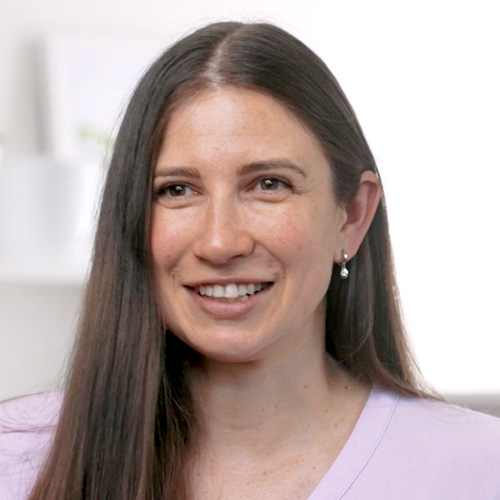10900NAT Graduate Diploma of Counselling (Christian)
10900NAT Graduate Diploma of Counselling (Christian)
The Graduate Diploma provides an environment where students will develop their professional counselling and therapy skills. aifc’s aim is to train Christian counsellors who ethically and effectively integrate their faith and practice.
The Graduate Diploma is structured to have three specific goals for students including:
- Enhance knowledge and skills of those already holding counselling qualifications or develop new knowledge and skills for those with other undergraduate degrees.
- Fulfill recognition and industry standards in providing Level 1 recognition with the Australian Counselling Association.
- Enhance the leadership ability and scope of influence of students in the counselling profession and the broader community.
Applicants who hold an undergraduate (or higher) qualification are eligible for entry into the Graduate Diploma. Areas of focus such as foundational counselling skills, self-care, trauma informed practice, and specialty electives ensure you receive advanced counselling skills and are equipped to build and maintain a healthy vocational life.
Delivery
The Graduate Diploma of Counselling (Christian) can be completed over 12 months by studying three units per term, or 18 months by studying two units per term, or 24 months by studying one or two units per term. Each term is 8-week terms.
Our students appreciate the structure and discipline of working methodically through units with fellow students and the support of an assessor they know by name and develop relationships with. The course is not self-paced. The rhythm of known due dates and regular submission of assessment tasks promotes timely progression through to completion.
Being an online course, you can study from anywhere in the world that has a reliable high-speed internet connection. Our video conferencing, recording, communication, and learning management platforms allow you to attend training, receive support from staff, connect with other students, and complete practical assessment requirements efficiently.
Live online and interactive training sessions take place at the beginning of each unit, but there are also recordings available if you cannot attend live.
The online experience is enhanced by skills-based seminars and workshops held over two days each term. The majority of the days are held online, but two days per year are offered face-to-face in Sydney, Melbourne, Brisbane and Perth. These are predominantly held online on a Friday and Saturday once a term and offer opportunities for further practical skills practice, exposure to additional theory, group supervision, and role play demonstrations. There are minimum attendance requirements for these seminars.
You will also be required to attend a mandatory one-day online Self-Care intensive as part of your first unit of study (NAT1090001 Manage own self-care in professional practice).
Course Units
Core Units
| NAT10900001 | Manage own self care in professional practice | Analyse one’s own professional wellbeing and care for self as part of an ongoing review for sustaining health and professional counselling practice. Evaluate the role socio-cultural issues and one’s past history have with regards to practitioner self-efficacy; with the view to implementing good self-care practices. Set personal goals to achieve a self-care regime. |
| NAT10900002 | Establish and apply counselling skills | Apply specific and specialised communication skills in the client-counsellor relationship. Assess the client’s wellbeing, safety concerns and goals, and use counselling skills with a structured approach to counselling to work with clients on personal and psychological issues. |
| CHCPRP007 | Work within a Clinical Supervision Framework | Initiate, prepare for and participate in a structured process of clinical supervision. |
| NAT10900004 | Work with complex contemporary and ethical issues in counselling | Explore and counsel clients dealing with complex contemporary legal, social and ethical issues in integrated counselling. Consider potential dilemmas in counselling practice and how these can be adequately addressed by practitioners. Reflect on one’s values and beliefs and be encouraged to think critically and ethically. |
| NAT10900006 | Assess and provide counselling for common mental disorders | Provide effective counselling to those who experience common mental health issues. Recognise circumstances and events that may lead to common mental health issues and provide effective therapeutic responses to these. |
| NAT10900003 | Provide trauma informed approaches to therapy | Provide effective therapy to those who have experienced reactions to trauma. Recognise circumstances and events that may lead to trauma reactions and provide effective therapy responses to these. |
| NAT10900005 | Apply Christian Counselling to common spiritual issues | Interpret Biblical passages and apply theological insights in counselling. Specifically, a Christian counselling approach is applied to common spiritual issues of rejection, forgiveness, identity and self-acceptance. |
| NAT10900007 | Evaluate and apply a new theoretical approach of counselling | Application of a new theoretical approach of counselling applied to suit a client’s presentation. Identify gaps in the counselling theoretical approaches one uses in practice and then research, critique, and apply a theoretical approach that could be suitable for a client’s presentation and evaluate outcomes. |
Electives
| CHCGRP005 | Plan and provide group counselling | Plan for group counselling, develop a therapeutic alliance for change with the group, manage the group process and evaluate the outcomes of group counselling sessions. This unit goes beyond psycho-educational group work. |
| NAT10900010 | Provide therapy for clients with behavioural addictions | Provide effective therapy for clients with addictive behaviours. Assess the nature and extent of various common addictions and provide effective therapy in response. |
| CHCFCS004 | Provide Grief and Loss Counselling | Explore the meaning and effect of grief and loss issues and work with individuals and families experiencing grief and loss. |
| NAT10900016 | Evaluate and apply common counselling approaches integrating psychology and spirituality | Explore and apply common approaches to integrated psychology and spirituality. This includes psychodynamic psychotherapy, Cognitive Behavioural Therapy, experiential psychotherapy and the use of psychopharmacological medication. |
| NAT10900011 | Identify and develop counselling business opportunities | Develop a business plan and implement a marketing strategy to win new business in the counselling industry |
| NAT10900008 | Conduct family counselling | Conduct family counselling from a systemic perspective. Engage with family members to identify and explore areas of problematic functioning and apply Christian counselling interventions to assist the family to remediate patterns of interaction. |
| CHCDFV006 | Counsel clients affected by domestic and family violence | Use counselling and facilitation skills to explore client issues and identify possible options by providing a safe and supportive environment. Encourage clients to be actively involved in seeking their own solutions |
| NAT10900015 |
Provide counselling to clients with mental health and alcohol and other drug issues |
Provide effective services to clients with mental health and alcohol and other drug issues. Understand the complexity of comorbidity conditions, assess these and provide appropriate services within a holistic treatment approach |
(NB Not all electives are offered in every quarter)
Entry Criteria
Be of a mature age (over 18 years) with appropriate employment or life experiences. Applicants who hold an undergraduate (or higher) qualification are eligible for entry into the Graduate Diploma. Applicants would have either existing experience within the people-helping profession and are looking to develop professionally or who hold an interest and wish to develop professional skills in a new area. A VET Student Loan may be accessed by eligible students for any unit in their 10900NAT Graduate Diploma of Counselling (Christian).
Seminar Locations
The 10900NAT Graduate Diploma of Counselling (Christian) is delivered online with Seminar Days at the following locations:
NSW
Stanmore House
53 Harrow Road
Stanmore NSW 2048
VIC
One Church
184 Surrey Rd,
Blackburn VIC 3130
QLD
Springlife
178 Springwood Road
Springwood QLD 4127
WA
Perth Bible College
1 College Court
Karrinyup WA 6018
2024 Course Fees
The Quarter 4, 2024 course fees for the 10900NAT Graduate Diploma of Counselling (Christian) are $14,400.00. Click here to see a detailed breakdown of unit costs and availability of VET Student Loan funding
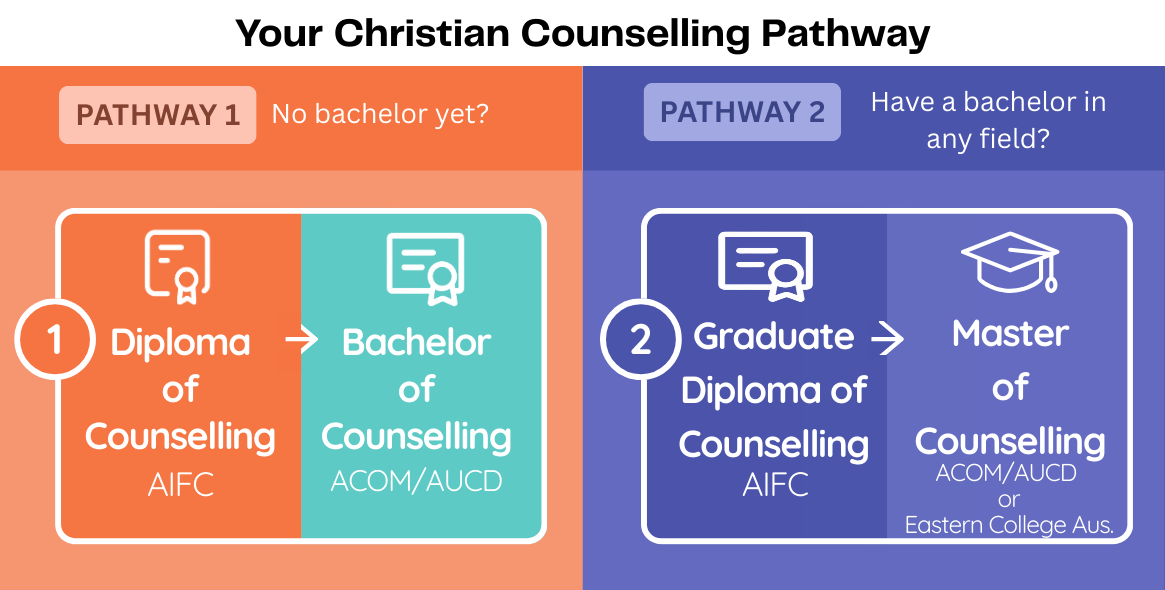
Delivery
The Graduate Diploma of Counselling is delivered over 24 months with two units per trimester. In the first year, students complete six core units, and in the second year, they undertake three electives and one spinal unit, where the placement is completed.
Our students appreciate the structure and discipline of working methodically through units with fellow students and the support of an assessor they know by name and with whom they develop relationships. The course is not self-paced. The rhythm of known due dates and regular submission of assessment tasks promotes timely progression through to completion.
Being an online course, you can study from anywhere in the world that has a reliable high-speed internet connection. Our video conferencing, recording, communication, and learning management platforms allow you to attend training, receive support from staff, connect with other students, and complete practical assessment requirements efficiently.
Live online and interactive training sessions take place at the beginning of each unit, but there are also recordings available if you cannot attend live.
The online experience is enhanced by skills-based seminars and workshops held over two days each term. The majority of the days are held online, but two days per year are offered face-to-face in Sydney, Melbourne, Brisbane and Perth. These are predominantly held online on a Friday and Saturday once a term and offer opportunities for further practical skills practice, exposure to additional theory, group supervision, and role play demonstrations. There are minimum attendance requirements for these seminars.
Entry Criteria
Applicants for a Graduate Diploma must:
- Hold an undergraduate degree or higher
and be over 18 years of age
- be competent in written and spoken English
- Provide proof of identity, such as a certified copy of a driver’s licence or passport.
- All applicants must complete the aifc Pre-Enrolment Questionnaire, which includes a Language, Literacy, Numeracy and Digital (LLND) self-assessment.
This process helps identify any areas where additional support may be required to ensure students are ready for online study.
All students must have a valid Unique Student Identifier (USI) before enrolling in any nationally accredited qualification with aifc, as required by the Australian Government.
Student support and wellbeing
aifc is committed to supporting each student’s academic, personal and spiritual wellbeing throughout their study journey. Students are encouraged to inform aifc at the time of enrolment of any additional support needs, including:
- Learning or disability support (e.g. additional time for assessments, assistive technology)
- Cultural or language support
- Pastoral and wellbeing support, available through the aifc Student Services and Abound counselling network
Early disclosure enables aifc to provide appropriate reasonable adjustments and connect students with the right support services from the beginning of their course.
Technology and equipment requirements
Because this course is delivered online and includes recorded workplace-simulated counselling role-plays, students must have access to:
- a computer or laptop with word-processing software (e.g. Microsoft Word or Google Docs)
- a high-speed internet connection
- a webcam and microphone suitable for online classes and recording assessments
- a quiet and private environment for video participation and counselling simulations
Additional requirements for students applying for a VET Student Loan (VSL):
Applicants must also provide evidence of
- completion of Year 12, or
- evidence of a Certificate IV (or higher) qualification, or
- complete a formal LLN assessment demonstrating working at Level 4 / Exit Level 3 in Reading and Numeracy, as required under the VET Student Loans legislation.
Course Units
Core Units
| Provide Counselling for Human Flourishing | Promote personal growth and holistic wellbeing through a flourishing-based counselling framework that integrates emotional, relational, spiritual, and psychological health, helping clients move beyond symptom reduction toward meaning, resilience, and purposeful living. |
| Establish and apply counselling skills | Apply specific and specialised communication skills in the client-counsellor relationship. Assess the client’s wellbeing, safety concerns and goals, and use counselling skills with a structured approach to counselling to work with clients on personal and psychological issues. |
| Manage own self-care in professional practice |
Analyse one’s own professional wellbeing and care for self as part of an ongoing review for sustaining health and professional counselling practice. Evaluate the role socio- cultural issues and one’s past history have with regard to practitioner self-efficacy, with a view to implementing good self-care practices. Set personal goals to achieve a self- care regimen. |
| Provide trauma informed approaches to counselling |
Provide effective therapy to those who have experienced reactions to trauma. Recognise circumstances and events that may lead to trauma reactions and provide effective therapy responses to these. |
| Provide Counselling for mental and emotional welllbeing |
Provide effective counselling to those who experience common mental health issues. Recognise circumstances and events that may lead to common mental health issues and provide effective therapeutic responses to these. |
| Evaluate and apply a theoretical approach of counselling |
Application of a new theoretical approach of counselling to suit a client’s presentation. Identify gaps in the counselling theoretical approaches one uses in practice and then research, critique, and apply a theoretical approach that could be suitable for a client’s presentation and evaluate outcomes. |
Electives
Students in the Graduate Diploma of Counselling complete four elective units, allowing you
to specialise in an area that reflects your calling and career direction. Each elective sits within
one of our Flourishing Streams — core pathways that represent different aspects of human
flourishing and professional practice.
Flourishing Streams (Students will choose a stream)
Flourishing Relationships – Deepen your understanding of how people connect,
heal, and grow through relationship. Develop advanced skills in attachment, family
systems, and working with individuals and couples in relational contexts. Units:
Apply Attachment Theory with Clients, Counsel Clients Affected by Domestic and
Family Violence, and, Provide Counselling to a Young Person.
Flourishing Workplace – Equip yourself to provide professional counselling and
wellbeing support in organisational settings. Learn to integrate business and
counselling skills that strengthen workplaces and communities. Units: Identify and
Develop Counselling Business Opportunities, Provide Brief Counselling within
Organisational Contexts, and, Provide Critical Incident Response
Flourishing Health – Explore the relationship between emotional, physical, and
spiritual health. Specialise in areas such as grief and loss, addiction, and
neurodiversity support, applying holistic counselling strategies to promote wellbeing.
Units: Provide Grief and Loss Counselling, Provide Counselling for Addiction and
Comorbidity, and, Provide Counselling for Neurodiversity Support
Flourishing Faith – Integrate theology and counselling by exploring Christian
formation, spirituality, and biblical approaches to conflict and growth. Prepare for
ministry, pastoral care, or faith-based counselling settings. Units: Apply Christian
Counselling to Common Spiritual Issues, Apply Attachment Theory with Clients, and.
Facilitate Biblical Conflict Resolution and Mediation
Gain real-world experience
Students gain hands-on experience through supervised placements, with up to half of the required
placement hours completed directly through the Tov Centre for Human Flourishing Community Care
Program. aifc also supports students to complete the remaining hours through the Tov Ecosystem’s
trusted networks and partner organisations, giving you access to diverse and meaningful counselling
settings.
Study Commitment and course duration
The Graduate Diploma of Counselling consists of 10 units in total —6 core units and 4 elective units and is delivered over 24 months.
Students should allow between 20 and 25 hours a week to complete the course.
All teaching is delivered online, with each unit including two 2-hour live classes at the beginning of each term to support learning and engagement.
Assessment and Practical Requirements
All assessment tasks are completed through aifc’s online learning platform and include a combination of written responses, case studies, and counselling sessions conducted with real external clients.
While some assessment activities include workplace-simulated role plays, the Graduate Diploma also requires students to demonstrate competence through actual client work.
As part of the Finalised National Standards for Counsellors, the Graduate Diploma now requires students to undertake a formal placement.
Placement for the renewed courses will be supported through the aifc’s Centre for Human Flourishing, meaning students will not need to source their own placements unless they wish to do so. This ensures consistent, high-quality placement experiences across both study pathways.
It’s important to note that placement is different from role plays and simulated client work. Under the new National Standards for Counsellors, placement is defined as Professional Supervised Counselling — similar to a teacher in training who gains real experience in a school setting. Students will complete 200 hours, 80 of which will be counselling with real clients seeking general counselling support, ensuring hands-on professional practice.
For upcoming study dates, see the drop-down menu under Train → Student Information.
Seminar Locations
The Graduate Diploma of Counselling is delivered online with Seminar Days at the following locations:
NSW
Stanmore House
53 Harrow Road
Stanmore NSW 2048
VIC
EASTERN College
5 Burwood Highway,
Wantirna, VIC 3152
QLD
Springlife
178 Springwood Road
Springwood QLD 4127
WA
Perth Bible College
1 College Court
Karrinyup WA 6018
Student Support and Wellbeing
At aifc, we believe that learning happens best when students are supported personally, academically, and spiritually. Throughout your study, you’ll have access to a wide range of services designed to help you succeed and flourish.
Academic and Study Support
Each student is allocated a qualified trainer and assessor who journeys with them academically and pastorally through each unit of study.
- One-on-one assistance from trainers and assessors is available throughout the course.
- Access to study skills resources, academic writing guidance, and structured feedback.
- Individualised support plans are available for students who need additional academic, learning, or wellbeing support.
- Extensions and reasonable adjustments may be provided where appropriate to ensure equitable participation.
Wellbeing and Pastoral Care
aifc provides a caring, faith-based environment that recognises the whole person.
- Students have access to free counselling sessions through trainee counsellors under supervision, or may choose to access support from Abound counsellors for confidential emotional and wellbeing support.
- Pastoral care is available through the Student Services team and Course Managers.
- Optional group sessions and community-building activities help foster connection and belonging throughout your study.
- Where needed, aifc can assist students in connecting with external support services for specialised care.
Disability, Cultural and Learning Support
If you have a disability, learning difference, or personal circumstances that may affect your studies, we encourage you to let us know early. This enables aifc to provide appropriate reasonable adjustments, develop individualised support plans, and connect you with the right resources to support your success.
2026 Course Fees
Course Fees – For those who enrol for Quarter 1 2026, the total course fees for the Graduate Diploma of Counselling are
$14,880.00. See details here.
For a full breakdown of payment options, invoicing, and the cooling-off period, please refer to the Course Fees page.
For information regarding refunds, withdrawals, or deferrals, please refer to the Withdraw, Defer or Change Enrolment Process & Procedure.
Licensing or Occupational Requirements
There are no specific licensing requirements attached to this qualification.
However, Students who enter the Graduate Diploma with a Bachelor’s (or higher) AND a previous counselling qualification accredited by ACA, are expected to maintain or obtain professional membership with either the Australian Counselling Association (ACA) or the Christian Counsellors Association of Australia (CCAA). Note that this cannot be student level. Professional membership ensures that graduates meet industry-recognised standards of ethical practice, supervision, and continuing professional development (CPD) required for practising counsellors in Australia.
Students who enter the Grauste Diploma without a previous counselling qualification are required to obtain Student Membership with either ACA or CCAA.
Why choose aifc?
At aifc we are:

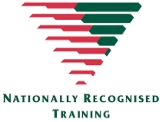
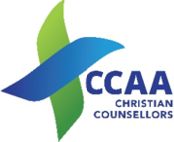

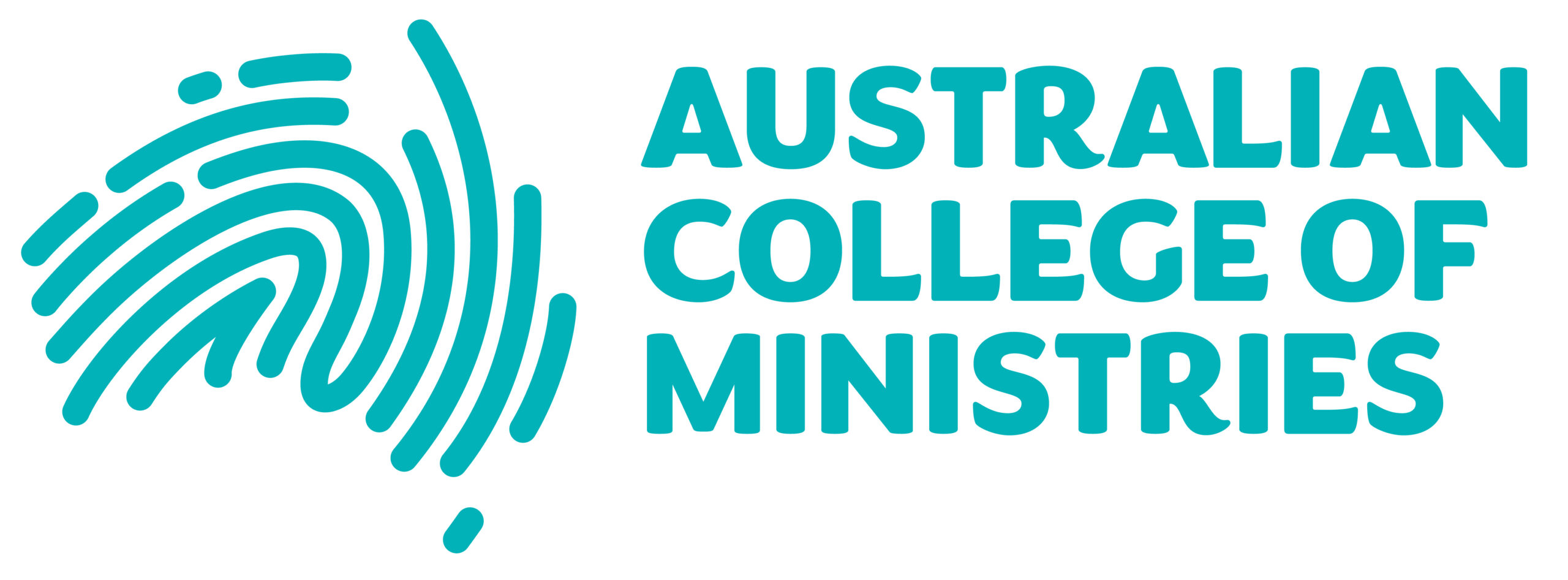

93.6%
of students were satisfied with the overall quality of their training.88.9%
of students would recommend aifc training.94.8%
of students would recommend their training provider.95.5%
were employed or enrolled in further study after training.
Download our course and services guide

What should I look for when choosing a provider?
When choosing the Provider for your christian counselling education, it is important to ask yourself

Bible-based
Our courses integrate theology, psychology and spirituality. We train and equip Christian counsellors, rather than Christians who do counselling.

Taught by professionals
Our trainers and assessors are all experienced professionals in their field. High quality teaching, combined with one-on-one access to trainers makes the difference.

Flexible
aifc offers both live online and face-to-face training. You choose which delivery mode is best suited to your lifestyle and work commitments.
Accredited
Our courses include a range of VET accredited qualifications and non-accredited short courses. aifc is also the only Christian counselling provider to be accredited by ACA, CCAA and is a member of ITECA.

Affordable
Finding a course that fits your budget is important. With funding options and Austudy & Abstudy available to eligible students, our courses continue to be affordable and within reach of those seeking to become a qualified counsellor.

Membership to aifc Counsel
An innovative online counselling platform, that offers state-of-the-art counselling features with the opportunity to collaborate with your counselling peers and build a thriving counselling practice.
At aifc, our sole focus is to train and equip Christian Counsellors. More than just a counsellor, a Christian counsellor trusts in God and listens to His still small voice above all else.
It’s a big difference.
Nicholas Marks, CEO aifc
Download the Course and Services Guide
We’ve put together a comprehensive course and services guide with everything you need to know about what aifc offers.
Fill out the form below and we’ll send it straight to your inbox.

